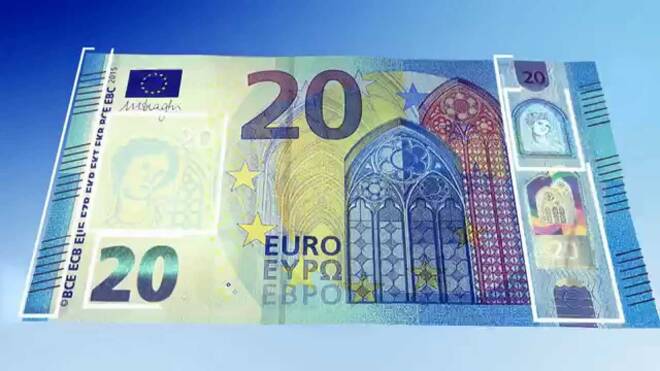Advertisement
Advertisement
Markit Euro Area PMI Lowest in 16 Months
By:
Markit’s latest Purchasing Manager’s Index (PMI) has reinforced the picture that the euro area is growing at a slow pace, as the index posted its lowest
Markit’s latest Purchasing Manager’s Index (PMI) has reinforced the picture that the euro area is growing at a slow pace, as the index posted its lowest score in 16 months.
For May, this index scored 52.9, a fall from the 53 that was reached in April.
As the average of the first quarter of this year was 53.2 from the financial research company, the weaker data from the past two months suggests that euro area growth will be sluggish for the second quarter.
The survey found that with new business growth also sliding to the lowest since January 2015, Markit’s research points to a strong likelihood of output growth remaining subdued or even weakening further in June.
The level of business activity in the vital service sector was unchanged for the third consecutive month.
There was also the smallest rise in new businesses in the service industries since January 2015.
When asked about their views over the future of their businesses in the service sector, there was little room for optimism, as expectations plummeted to a ten month low.
The rate of manufacturing growth was also disappointing Markit found, as the output in the sector was the second weakest since February lat year.
The growth of new orders that was received by factories also eased the survey found.
Producers said that the domestic market within domestic markets it remained a tough environment to trade in.
International trade flows have also floundered, as the smallest rise in new export business for 16 months.
There was better news over employment levels, as levels of unemployment in the euro area fell for the nineteenth month running in May. The overall rise in employment was the largest since February.
Despite the negative rate of inflation that have been found in the euro area, Markit found that price gauges were higher in May.
Input costs were rising at their fastest pace since July 2015, as a substantial increase from service providers, offset a further reduction in manufacturing.
The decline in manufacturers’ purchasing costs was the slowest in nine months, which can be attributed to the rise of some commodity prices, notably oil price increases.
German Manufacturing and Service Sectors Strengthen.
Germany, the euro area’s most powerful economy, recorded positive manufacturing and services figures in the Markit survey. The expansion in both sectors was at its fastest since the end of last year.
France, whose economy has shown signs of consistent growth in the past three quarters, rising to 0.5% in the first quarter of this year, also saw continued movements away from stagnation, as Markit found that output rose for the fastest pace in seven months.
The accelerations in France and Germany were counteracted by a cooling of the rate of expansion outside of the biggest two economies in the euro area, to a 17- month low.
Euro Rises and Falls Against the Dollar
The EUR/USD rate has seen the euro rise to buying $1.124, before falling to £1.120 as the trading progresses this morning GMT.
LMAX Exchange said in their daily report, that the euro has entered a period of subdued trade after Friday’s firmer stock prices, and more hawkish noises being made from the Federal Reserve, failed to have any significant impact on EUR/USD.
Overall, the single currency has come back under pressure in recent days, as the Federal Reserve has also said that the market may not be taking seriously enough a move on rates sooner than later.
About the Author
Peter Tabernerauthor
Advertisement
